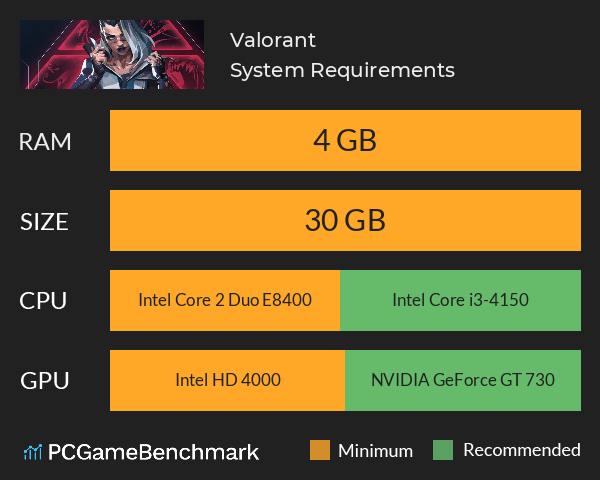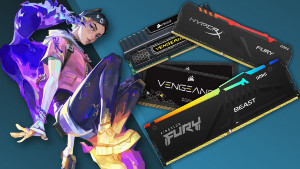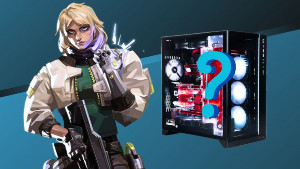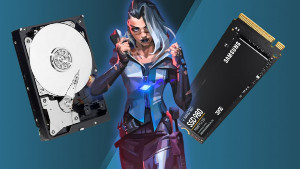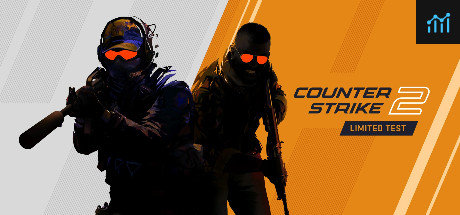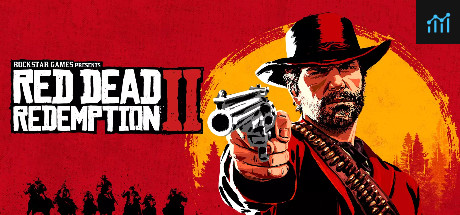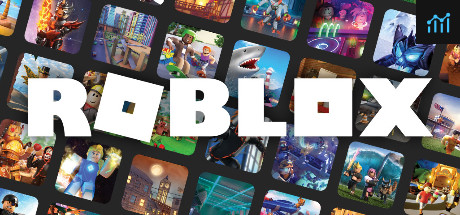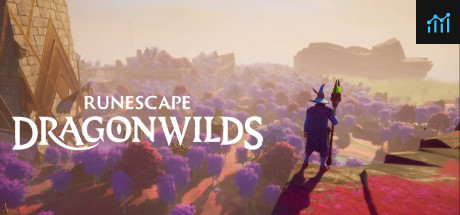Valorant requirements 2025
Valorant system requirements, updated with the desktop or laptop you need for the minimum system and recommended specs.
Valorant minimum requirements
- Memory: 4 GB
- Graphics Card: Intel HD 4000 or Radeon R5 230
- CPU: Intel Core 2 Duo E8400 or Athlon 200GE
- File Size: 30 GB
- OS: Windows 7 64-bit
Valorant recommended specs
- Memory: 4 GB
- Graphics Card: NVIDIA GeForce GT 730 or Radeon R7 240
- CPU: Intel Core i3-4150 or Ryzen 3 1200
- File Size: 30 GB
- OS: Windows 10 64-bit
Can you run it? Test your computer against Valorant system requirements.

Can I Run Valorant?
To run the Valorant system requirements for PC, you will need an AMD Radeon R5 230 GPU, an Intel Core 2 Duo E8400 CPU, 4GB of RAM, and 30GB of HD space.
Valorant PC requirements are so accessible that even mid-level laptops from 2015 should be able to run Valorant without issue. The only sticking point older machines may have is that the game requires Windows 10 64-bit OS or higher.
To meet the Valorant minimum requirements, you will need an Intel Core Duo 2 E8400 or AMD Athlon 200GE processor, an AMD Radeon R5 230 or integrated Intel HD 4000 graphics, and 4GB of RAM in order to hit a consistent 30 FPS.
If you want to hit a smoother 60 FPS gameplay experience, you'll need to meet the Valorant recommended specs, which require an Intel Core i3 4150 or AMD Ryzen 3 1200 processor paired with an NVIDIA GeForce GT 730 or Radeon R7 240 graphics card.
Competitive minded gamers will want to aim for the high-end Valorant system requirements, as this will net you 144FPS or more. Since the developers at Riot state you can achieve this with an Intel Core i5 4460 or AMD Ryzen 5 2600X alongside an Nvidia GeForce GTX 1050 Ti or AMD Radeon R7 370, anyone running RTX graphics will have an easy time hitting triple digit frame rates.
Unfortunately, you won't get a helping hand from upscaling features like NVIDIA DLSS or AMD FSR. You can lower the game's pesky system latency with NVIDIA Reflex if you have a GeForce GTX 900 series GPU or newer, which can give you a serious advantage in-game.
Valorant size - How big is Valorant?
The Valorant download size for PC comes in at 30GB of HD space. On PS5, the file size is 26.54 GB, and on Xbox Series X|S it is around 28 GB.
You don't need to install the game on an SSD, but we would recommend doing so over a HDD to ensure you get the best gameplay performance, and to ensure your PC doesn't bottleneck on load times. So, if you need more space or want to make an upgrade, check the PCGamesN buyers guide for the best SSD for gaming or or just check the latest best prices for SSDs.
Valorant VPN
Using a virtual private network can improve your game by helping you always get the noob lobbies. Check out pick of the best NordVPN at a low price and use the service that has been recommended as the best gaming VPN 2025.
Looking for other Riot games? Check our League of Legends system requirements or, if you fancy a 2v2 fighter from Riot Games, try your hand at the newly predicted 2XKO system requirements.
Valorant Anti-Cheat BIOS
It's worth noting that, since the Valorant Anti-Cheat Update (which is the name of the update), your computer's BIOS settings must be set to TPM 2.0 and UEFI Secure Boot. If your computer is set to "Legacy" boot, you will not be able to play the game. The developers implemented this requirement in order to prevent cheating.
Valorant settings
If you're struggling and want a Valorant FPS boost, then there are a number of steps to try and improve game performance in PCGamesN's best Valorant settings guide. To help boost FPS, try turning down Material Quality, Texture Quality, and Detail Quality to the next preset down. If you're using anti-aliasing in the Valorant settings menu, try turning the setting down or off altogether. Additionally, always ensure you are running the latest NVIDIA or AMD drivers for your graphics card for optimal performance.
How to fix Valorant FPS drops
So, there are a number of factors that could be causing your Valorant FPS drops, and you should go through the following steps one by one, and launch Valorant at each stage to see if there is an FPS improvement:
- Close programs running in the background that aren't needed such as Google Chrome and Discord (both of which can cause significant FPS drops from what we've found in testing). To do this, open the Windows Task Manager, and scroll to "Apps" and "Background processes". Locate programs like Chrome and Discord, right click on the process, and select "End Task". Note: your PC will have a number of background processes that are needed, so only close programs you know your PC doesn't need to function normally.
- Set the Valorant Detail Quality, Material Quality, Anisotropic Filtering, and Bloom settings to "Low". These settings in particular demand a considerable amount from your machine despite having minimal impact on your overall gameplay experience (yes, the game won't look as pretty, but FPS drops can cost you the game, which is worse than a reduced graphics quality).
- In the Video > General area of your Valorant settings, make sure your Display Mode setting is set to Fullscreen. Additionally, set "Limit FPS on Battery" and "Limit FPS Always" to Off, and turn "Limit FPS in Menus" and "Limit FPS in Background" to On. Set the "Max FPS" for both the menus and background to 30FPS.
Valorant update
Previously Riot Games rolled out a Valorant anti-cheat update following numerous complaints about cheating within the game. This update introduced the VAN:RESTRICTION system that essentially checks your PC to see if it meets all of Valorant’s security requirements.
Many of these requirements are buried in your computer’s BIOS settings, but most modern PCs should already have TPM 2.0, and Secure Boot enabled. Players who do not meet Valorant’s anti-cheat requirements will be prevented from playing the game until they perform the necessary updates.
Developer Riot Games has created a dedicated support article, that lists all the known Valorant issues that it is working to resolve. Given that Valorant is a live service game, we can expect constant patches and post-launch content updates to hit the FPS in the future.
Valorant Steam
As of 2025, Valorant is only available on the Epic Games Store and the official site, meaning there is no Valorant Steam edition. Riot Games and Xbox have worked together to bring Riot’s biggest titles to PC Game Pass. With a Riot Account and Game Pass membership, players can unlock premium Xbox Game Pass rewards and member-only benefits.
Valorant will run on PC system with Windows 7 64-bit and upwards.
Looking for an upgrade? Try our easy to use Valorant set up guides to find the best cards. Filter for Valorant graphics card comparison and CPU compare. We'll help you find the best deal for the right gear to run the game.
Valorant FPS - what frame rate can you expect?
How many FPS will I get on Valorant? We reference thousands of reports from PCGameBenchmark users running our FPS tracking app to tell you exactly how Valorant performs across a range of different settings and resolutions on the most popular PC gaming setups.
What frame rate does Valorant run at?
Here are the typical frame rate samples
| Avg FPS | CPU | GPU | RAM |
| 103 | Intel Core i7-9850H | NVIDIA Quadro T2000 | 16 GB |
| 84 | Intel Core i5-9300H | NVIDIA GeForce GTX 1650 | 8 GB |
| 71 | Intel Core i5-10400F | NVIDIA GeForce GTX 1650 | 16 GB |
| 66 | Intel Core i3-1005G1 | Intel UHD | 8 GB |
| 48 | Intel Core i7-9700K | NVIDIA GeForce RTX 2060 SUPER | 16 GB |
What frame rate does Valorant run at? Check our FPS Calculator
Are you experiencing Valorant FPS drops and stutters? Want to know exactly how the game performs on your system? You can get a free easy FPS test for all your games using the PCGameBenchmark FPS monitor tool - your first step to understanding how the parts in your gaming PC are actually performing in real-world conditions.
